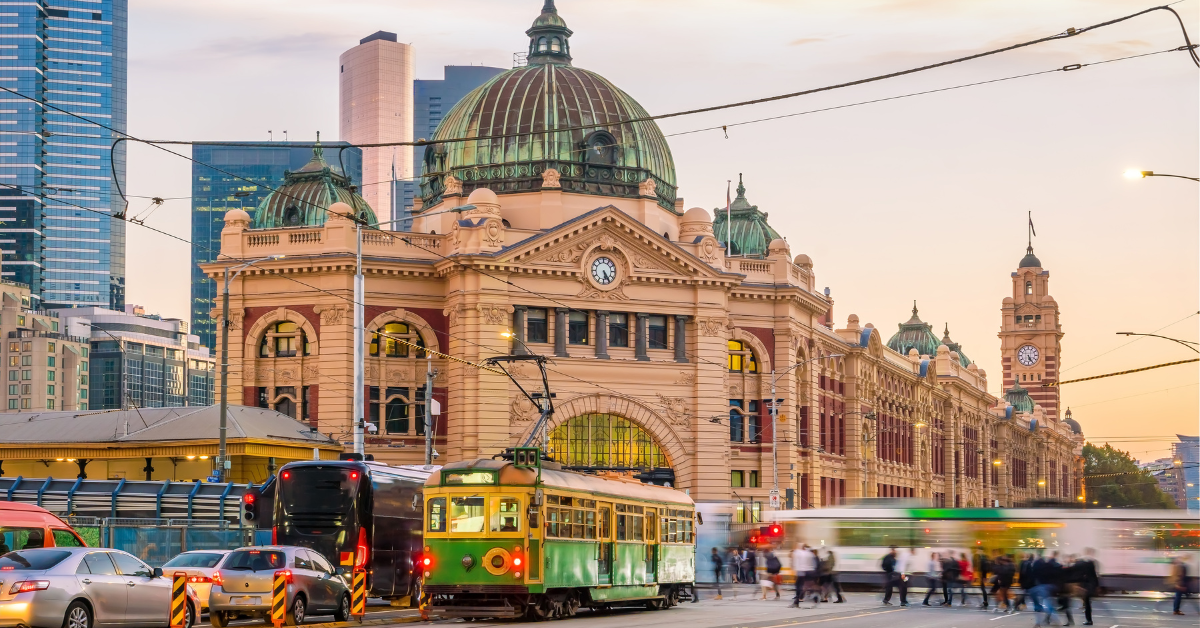Melbourne, one of Australia’s most vibrant cities, has an unusual kanji representation: “墨耳鉢恩.” While rarely used in everyday life, this notation highlights Japan’s tradition of adapting foreign sounds into kanji. For Japanese people, Melbourne is not only a place of art, café culture, and sports, but also a city where livability and cultural depth coexist.
The Kanji Notation “墨耳鉢恩” for Melbourne
Melbourne can be expressed with the kanji “墨耳鉢恩.” This is a phonetic transcription, not an official place name. In Japan and Chinese-speaking regions, it has long been common to assign kanji to foreign words, including city names and personal names.
Here are some examples:
| City | Kanji | Reading |
|---|---|---|
| Melbourne | 墨耳鉢恩 | Bokuji Hatsuen |
| Sydney | 雪梨 | Sherii |
| Perth | 伯斯 | Paasu |
| Brisbane | 布里斯班 | Burisuban |
As the table shows, these notations prioritize sound over meaning. While they have little practical use, they represent a unique cultural attempt to integrate foreign sounds into the Japanese writing system.
The Image Japanese People Have of Melbourne
For Japanese people, Melbourne is strongly perceived as a city where culture and nature coexist harmoniously. While Sydney is seen as a hub of business and tourism, Melbourne is remembered as “a livable city” and “a city of intellectual stimulation.”
The positive impressions include:
- Known as a city of art and music
- Famous for its café culture, among the best in the world
- Consistently ranked as one of the most livable cities
- Green parks and elegant streetscapes
- Rich in multicultural dining and community life
These elements combine to give Japanese people the impression of Melbourne as “a stylish and safe city.”
Melbourne’s Sports Culture
Melbourne is a world-renowned sports city where major events unite the entire population and bring vibrancy to daily life.
Here are the highlights:
| Sport | Major Event | Feature |
|---|---|---|
| Tennis | Australian Open | One of the Grand Slam tournaments, with strong Japanese interest |
| F1 | Australian Grand Prix | Often the opening race of the season, attracting global attention |
| Australian Rules Football | AFL Grand Final | Deeply rooted in local life, a cultural staple |
| Cricket | International matches | Popular due to British influence |
Sports are not just entertainment here; they are a force that binds communities together. Japanese visitors often remark on the excitement and unity felt throughout the city.
Voices of Japanese Travelers and Students in Melbourne
The impressions of Japanese visitors and students can be summarized as follows:
| Perspective | What Japanese People Appreciate |
|---|---|
| Streetscape | European-style architecture makes walking enjoyable |
| Cafés | High-quality coffee available everywhere |
| Transportation | Well-developed public transport |
| Safety | Relatively stable and safe environment |
| Education | Strong environment for art and design studies |
For students, the biggest appeal lies in gaining not just language skills but also exposure to diverse cultures and values. Melbourne’s art and design education, supported by numerous galleries and museums, is particularly attractive.
Melbourne’s Food Culture and Lifestyle
Melbourne is also celebrated for its culinary diversity. As a multicultural city, it offers a wide range of food choices, which is reassuring for Japanese residents and appealing to tourists.
| Food Culture | Feature |
|---|---|
| Café Culture | World-renowned barista skills |
| Multinational Cuisine | Rich Italian, Greek, and Asian options |
| Japanese Food | Abundant ramen and sushi restaurants for comfort |
Cultural exchange through food is a daily occurrence in Melbourne, making the city a place where global flavors are accessible in everyday life.
Melbourne’s Appeal to Japanese People
Melbourne is valued not just as a tourist destination but also as a city where learning and living coexist. With its balance of urban convenience and natural beauty, it offers a lifestyle where study, work, and leisure blend seamlessly.
Key points include:
- Education and research opportunities, ideal for students
- Everyday exposure to sports and arts
- Relatively stable living costs offering a sense of security
- Minimal time difference with Japan, making lifestyle adjustments easier
Conclusion
The kanji notation “墨耳鉢恩” for Melbourne is rarely used in practice. However, it remains a unique Japanese cultural expression that captures the sound of a foreign name in kanji.
For Japanese people, Melbourne holds multi-faceted appeal: a city of art, a city of café culture, and a sports capital. Events like the Australian Open, Formula 1, and Australian Rules Football fill the city with excitement, while education and food culture add depth to daily life. For both short-term visitors and long-term residents, Melbourne will continue to be regarded as one of the most attractive destinations.






